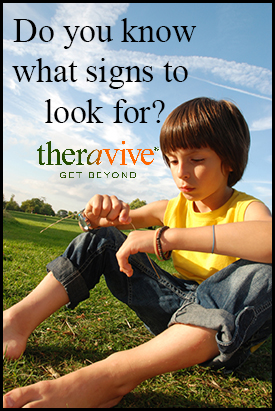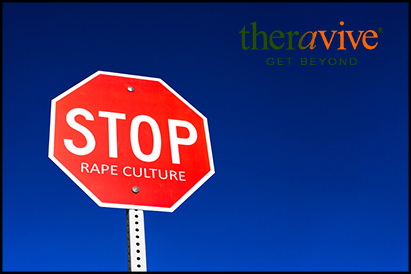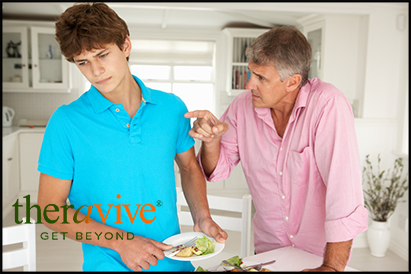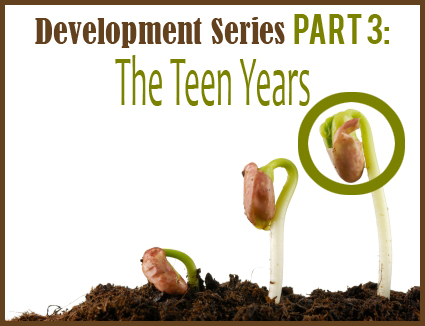Dating is supposed to be a time for teens to explore relationships and learn about themselves. It is supposed to be fun--and safe. But sometimes things go terribly wrong. Too often, teens are resorting to emotional and physical violence to resolve conflicts and manage painful feelings. Teens and their loved ones must be able to recognize abusive behavior in relationships, and know how to safely leave a relationship and get help.
[More]
Hazing is a widespread problem impacting not only colleges and universities, but high schools, as well. Rites of passage and initiation rituals are nothing new, but some of the hazing that goes on is devastating for victims and their families, and even illegal. Both victims and those participating in perpetrating the hazing can experience significant psychological effects including trauma reactions and shame and guilt. Joining any group, team, or club should not mean sacrificing your physical or psychological health and well-being.
[More]
October 20, 2014
by Christie Hunter

Dr. Randall Green, PHD, LMFT, CAP, is not only an octogenarian (80-years-old); he is also 34-years sober. He recently stopped by a South Florida teen drug and alcohol addiction rehab to offer those in recovery eight slogans to live by that can change their life in a positive way.
While the speech was presented at a teen alcohol and substance abuse treatment center and the speaker is a clinical director in the drug and alcohol industry, I thought his points resonate with all teens – whether or not they suffer from alcohol or substance abuse addiction.
[More]
September 12, 2014
by Cathy England, MA

Many children struggle with mental illness. However, unlike adults, the symptoms are different and can be more difficult to recognize. Sometimes parents are unaware of the warning signs of mental illness in children, and if it is recognized, they may not know who to turn to. Mental health issues affect children in school, at home and in the community, and left untreated can cause delays in development in those domains.
[More]
These disorders are very dangerous, and must be taken seriously and treated by a professional. As a parent, it can be difficult to know what to do. You want more than anything to help your child, even while you and your family struggle with conflicting emotions, including fear that your child will seriously harm herself, or even die.
[More]
What is Body Image? Body image is how you view, feel about and experience your body. It refers to whether you like (positive body image) or dislike (negative body image) your looks, height, weight, shape and abilities. Body image also encompasses how you feel inside your skin, the way you move and manage your body.
[More]
April 21, 2014
by LuAnn Pierce, LCSW

For many women, sexual assault is the most frightening experience they can imagine. Sexual assault is being forced or coerced to engage in any unwanted sex act, whether physical, verbal or visual. Sexual assault aka sexual violence includes all forms of rape, incest and sexual abuse of children or teens, domestic violence, stalking, sexual harassment and hate crimes. The statistics are staggering.
[More]
April 18, 2014
by Casey Truffo, LMFT

The time when your teenager moves toward adulthood is an important time; however, it can be among the most difficult for a child AND their parents. Books, music, and movies many times refer to the theme of coming of age and relay the challenges associated in the transition. For families, this is a most emotional time because parents often are faced with disappointment and broken hearts as they feel their child no longer needs them, while their teenager is separating from them and developing new social circles. And although most teenagers are excited about this time in their lives, some are saddened or miss the safety that they had in their childhoods.
[More]
January 25, 2014
by LuAnn Pierce, LCSW

Adolescence is a time for learning new things, questioning what you have been taught by parents and authority figures and exploring a wide range of possibilities.
[More]
August 28, 2013
by Cindy Marie Hosszu

Back to School Series:
There goes your child…. And most of your heart
We notice it on that first day of kindergarten, or the first time our kids ride their bike out of our sight, or want to walk to a friend’s house. That sense of pride, and joy mixed with a crushing sense of fear and loss, as we watch our children grow, and experience the normal independence that will eventually bring them to adulthood. Often times, we think of our fears when we consider our reaction to our children growing up. The world can be a scary place to entrust our children. According to a GALLUP poll, 33% of U.S. parents with children in kindergarten through 12th grade fear for their child’s safety, and 52% think it is likely that a school shooting could occur in their area. [1]
The Loss Side of Letting Go
However, we don’t often acknowledge the loss we feel as part of letting go of our kids. We start to feel the loss side of letting go as our children head into adolescence. As our kids display a desire to separate from us, and we see them becoming more alien to us, we start to admit to ourselves that we are losing them. Understanding what is taking place in our kids can help us to let go more effectively, and help our kids through the transition from child to adult.
The Teen
First we should define this period when we start to feel that we are losing our kids. Every child is different, but most develop and experience a variation of the same stages during adolescence. Adolescence is approximately ages 11 – 21, and is commonly recognized as 3 stages in development.[2]
Early adolescence, ages 11-13, begins the period when a child struggles with their sense of identity. They may feel awkward, moody, and revert to childish behaviors. They are realizing that the parents they have idolized are only human, and conflict tends to arise. This is the time when they will test the limits of parent rules. This is a time when their thinking becomes more abstract, and the interests become more about moral things. They feel peer pressure, have a greater need for their privacy, and want more independence.
With the shift from their childhood identity to adolescence, parents may feel a loss of companionship. Their little boy or girl is no longer little, and has a new way of looking at themselves. Parents may feel the conflict creating stress in the home, and that their child is losing their respect.
Middle adolescence, ages 14-18, brings with it a greater sense of self. While the teen is still feeling the changes of identity, they are better able to reason, set goals, and begin to think of life in terms of their purpose and the larger picture, and they become passionate about their beliefs. They will distance themselves from parents, while integrating friendships into their lives in a deeper capacity. They may fall in love. This is a time when they will fight for causes, and justice.
It is during middle adolescence that parents will feel a loss of communication. The new freedoms that come with age can make parents aware that they cannot protect their child from the dangers of the world. Driving, dating, obtaining employment, or the thought of heading off to college are reminders that the child is becoming an adult. The dynamics of the relationship are changing, and the parent may feel stuck between the responsibility to protect their child from the child’s lack of life experience, and the realization that they must let their child make mistakes on their own.
Late adolescence, age 19-21, is the final stage of adolescence. This is the period when the young men and women become emotionally more stable, have developed a sense of identity, and a concern for their future, and others. They can think situations through, and are no longer run by instant gratification. They can examine their internal processes, and can be self-reliant, and aware. While peers are still important to them, they see the value in the family traditions and develop more serious relationships.
In this final stage of adolescence, parents experience the “empty nest.” As young adults head off to college, or move into their own environments, parents may feel as deep sense of loss. They feel the sense of responsibility has transferred from them to their child. They may feel depressed or obsolete.
It is Physical
It is not that our kids hate us, or that we are ruining them. Changes in the brain through adolescence are incredibly vast. Aside from the capacity for intellectual power greater than any other time in a human’s life, they are experiencing changes in hormonal chemicals that interfere with stress, as well as behavior. Their circuitry for emotional response is changing, and research as also shown that inadequate sleep can be responsible for many of the behavioral, and emotional attributes of adolescents.[3] Understanding that these changes are chemical gives us some power to cope with the emotions we see in kids.
There Is No Manual, But There is Help
Our kids don’t come with the proverbial owner’s manual, but we can gain knowledge from the experience and expertise of others. If at any point in your child’s life, you struggle with letting go, there is help available. You are not alone. Many people can benefit from counseling when navigating the delicate balance between keeping our children safe, and letting go enough for them to grow into the happy, healthy people they are becoming. Letting go is not always as easy to define as a set of circumstances for an age group. Sometimes the fear of letting our young children be independent can be overwhelming. A counselor can help navigate the journey. You can read more about therapy here.
[1] "Parents' Fear for Children's Safety at School Rises Slightly." Gallup.Com - Daily News, Polls, Public Opinion on Politics, Economy, Wellbeing, and World. N.p., 28 Dec.2012. Web. 4 Aug. 2013.
[2] Stages of Adolescent Development. (2008). Retrieved from http://www.ehsnrc.org/Publications/English%20Tip%20Sheets/TIP%20SHEET%2034_addendum.pdf
[3] NIMH · The Teen Brain: Still Under Construction. (2011). Retrieved from http://www.nimh.nih.gov/health/publications/the-teen-brain-still-under-construction/index.shtml